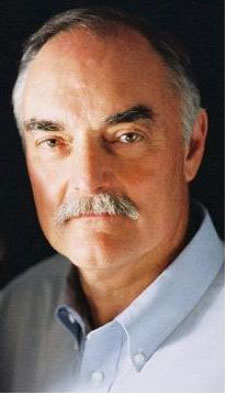Dan Guenther: Story-Telling in Poetry and Prose
 (Dan Guenther’s poetry is exemplified in High-Country Solitudes (Grand River, 1997) and his fiction in China Wind (Ivy Books, 1990) and the recently released Dodge City Blues (Redburn, 2007). He was a captain in the U. S. Marine Corps, serving in Viet Nam, where he was awarded the Bronze Star with “V” for valor, and he has served on the Board of Directors of the Colorado Author’s League.)
(Dan Guenther’s poetry is exemplified in High-Country Solitudes (Grand River, 1997) and his fiction in China Wind (Ivy Books, 1990) and the recently released Dodge City Blues (Redburn, 2007). He was a captain in the U. S. Marine Corps, serving in Viet Nam, where he was awarded the Bronze Star with “V” for valor, and he has served on the Board of Directors of the Colorado Author’s League.)
(1) I think of myself as a storyteller. That perception has expressed itself over the years in the yearning to write both poetry and fiction. Having said that, it also seems to me that the things within that move us toward writing either poetry or fiction are related, but different in their origins.
(2) Looking back, as a small boy I had a wild imagination; and I was always making up stories to entertain various audiences ranging from adults to boyhood friends. That wild imagination within me evolved into a yen for writing short stories and eventually three published books written for specific audiences. The urge to express myself through poetry was more complex, grounded much more in a need that arose out of feeling, especially after reading the works of other good poets.
(3) My poetry is written out of a different yearning than that of my fiction. When I write poetry I am not concerned about a specific audience other than myself. What is important for me is to capture a lyric truth, so-to-speak. In contrast, my fiction is more purposive, and I am usually writing with a specific audience in mind. Both in my serious and in my commercial fiction, I am much more conscious of craft. My fiction tends to be action-driven. However, I feel an obligation to present characters that are precisely drawn and realistic, as opposed to presenting the surreal. My characters almost always face some problem or challenge that they have come to terms with.
(4) My poetry usually arises out of a response to some vision or powerful feeling. Later, I may refine what I have written, my personal definition of poetry being the art of using figurative and image-laden language that is often rhythmic, to teach and delight. Mostly I teach and delight myself. My approach to writing has had an evolution over the years. Some things that Fred Exley, author of A Fan’s Notes, once said back in 1972 about his writing process come to mind:
“I write not just to tell a story, that simple yearning to satisfy a creative urge. I now write to discover the real story that is there, the story waiting to be told as the characters evolve. And I write because I aspire to a more complete understanding of things. Writing has taken me to places where my understanding has become more complete as a result of my efforts.”
(5) As Fred Exley also once pointed out, the process of writing fiction or poetry can help purge some of the things that keep us awake at night. Sorting out those demons, he called it. At this stage of my life, with the different genres, I’m still doing a lot of sorting, experiencing each demon in a different way. In the sorting, some subject matter lends itself to fiction, each demon being a unique story. Other demons are more elusive; especially those anchored in aspects of artistic temperament, and seem more appropriate to poetry.

